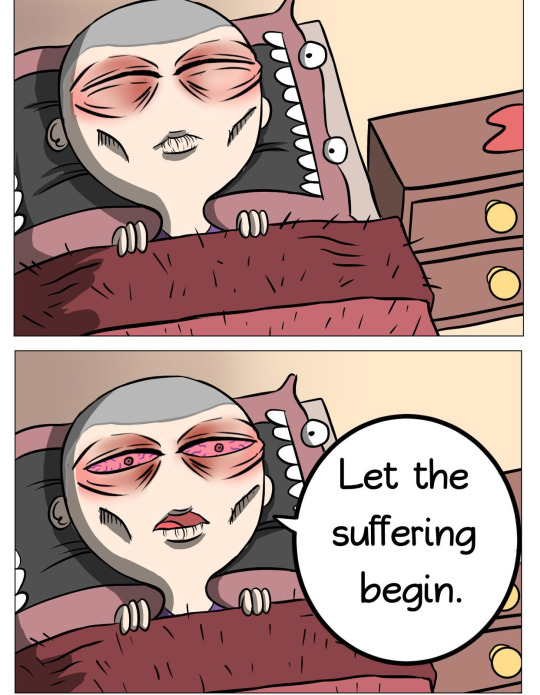"Only a life lived without limits is a life lived without regrets." - Taj Pacleb
Don't wanna be here? Send us removal request.
Text
Peer Review Questions: ePortfolio
Evan Thom
(1)
Intriguing: ESports is growing “on average 40%” in the market per year. ESports player Oleksandr “s1mple” Kostyliev has played “about 18,600 hours” of Counter-Strike.
Confusing: The 3rd argument is all over the place. I don’t understand the point of the 1st column for argument 2. It just talks about cheating in eSports and not about why it is not a real sport.
(2)
A: He uses a lot of numbers to solidify his argument.
B: Uses real-life examples to support his arguments.
(3)
Argument 1 - ESports should be considered real sports because it requires intensive training and high skill levels.
Argument 2 – Sports require physical activity. That is why eSports should be classified as activities or hobbies and not as real sports.
Argument 3 – Playing video games isn’t a waste of time because of the friendships that can be made and retained throughout life.
(4)
Writing is something that can be improved on. It takes knowledge and practice, which then leads to improvement. He needs to provide more support for his theory.
(5)
To establish ethos, he uses the introduction by giving the audience some background about himself.
To establish pathos, he uses real-life examples to help the audience connect with what he is saying, painting a detailed picture for them to see clearly. An example of this was in his 2nd argument when he was talking about the differences between eSports and the NFL, describing an NFL game as a battle with injuries and sacrifices while eSport players sit in front of their screens.
To establish logos, he uses statistics and historical events to create a foundation for his arguments. He uses this a lot for his 1st argument with numbers like that eSports is “growing on average 40% in the market per year” and that eSports player Oleksandr “s1mple”Kostyliev “has played “about 18,600 hours” of Counter-Strike.
(6)
I understand all the arguments except the 1st column for argument 2 and argument 3. For the 1st column, I don’t see the purpose of talking about cheating in eSports. He should connect it more with argument 2 as a whole, that eSports doesn’t qualify as a legitimate sport because of whatever reasons there are. For argument 3, it was all over the place, making it hard for me to get a clear message from it. He needs to organize his train of thought and redo the video with a higher quality microphone. All the other arguments were good because I could see why everything that was said mattered and the value it added to the argument overall.
(7)
Overall, he needs to add “more flavor” to his ePortfolio. He should make it a true reflection of who he is and make it unique. Adding different features here and there would help. Most of his arguments were solid. However, the 1st column of argument 2 and argument 3 need some revision to be done. He also needs to keep developing his theory of writing with evidence to support it, but it’s been good so far. The good thing is that he is going in the right direction with his ePortfolio. He just needs to keep going on the right path.
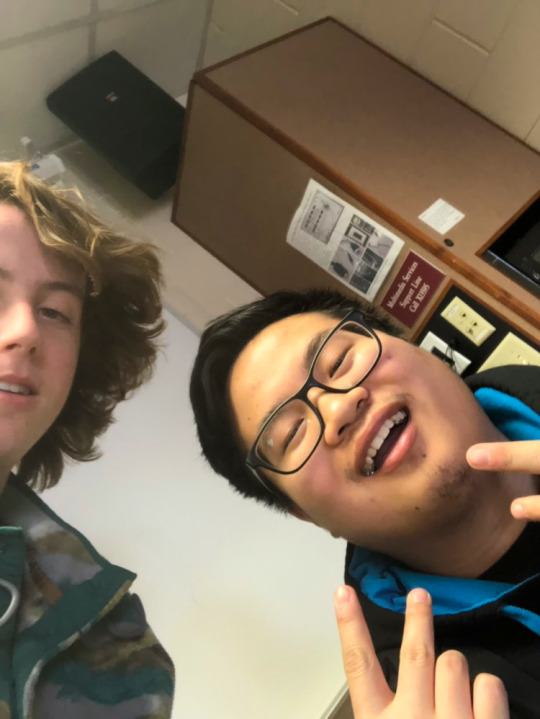
1 note
·
View note
Text
Sunday Something: Week 10
Sooo.......I'm a Seventh-day Adventist and I always hear questions like, “If God is good, why does all this suffering happen? Why doesn’t He just take it away?” Pastor David Asscherick, in this sermon, helps us find answers to these questions. Although you guys don’t have to, I would really appreciate it if y’all took some time out of your day to listen to it. It’ll be a blessing, I promise🙌🙏
https://youtu.be/0iKvqeEUwz0?t=92
youtube
1 note
·
View note
Text
Self-Assessment Reflection
Sooooo, yea… writing 1122 was something. From late nights to weird drawings, this class has hit me with the unexpected. Going into the class, I thought that I was a pretty good writer and just needed to breeze through this class for the credits. I actually ended up enjoying the class. Sure, it was hard and a lot of work, but I can say I came out with lessons that pertain to more than just writing, mostly what to give a f*ck about.
A lot of the terms we talked about in class I had an idea about going into the class. Genre systems, rhetorical situation, rhetoric, reflection, and revision are just a few I can name off the top of my head. I honestly still don’t have a clear-cut definition for many of the terms, but I do get the big picture for each one. Just knowing them helps me get a vision of what I should be looking for and what my writing should look like.
The biggest thing that got me in this class was the amount of writing we had to do. Sure, it is a writing class, so we have to write, but I didn’t expect to write this much and often. Because of this, I felt like the quality of my writing wasn’t as good as it could be. I could have done more revision, but deadlines are a thing and I just felt like I never got to the point where I felt like my writing leveled up.
I can only really blame myself for this. Procrastination is a thing, and I always underestimate its power. Instead of working on assignments I end up going down a rabbit hole of random YouTube videos just because I want to. Writing 1122 challenged my priorities, yet they haven’t changed much. If this class taught me anything it’s that I need to fix my habits. I need to change what I give a f*ck about.
Overall, I would give myself a 3 out of 5-star rating. I learned many lessons in this class that pertained to more than just writing but also felt like my writing didn’t improve as much as I wanted it to. I was able to develop my voice as a writer, but I also still struggle trying to find the right words to use. I did good, but not good enough. As for challenging myself, I would also give a 3 out of 5-star rating. I pushed myself hard enough to get stuff done and to learn in the class, but not to the point of being really deep or always engaging in class. I didn’t push myself to get down into the nitty gritty of the things we talked about in class. At the end of the day, progress is still progress. Although it wasn’t as much as I wanted to, I grew as a writer by developing my voice. Along with that, I also grew as a person, learning valuable lessons that I can take with me wherever life leads me. All in all, I’m glad I took Dr. KT’s writing class.
0 notes
Text
Let’s Have A Moment
1st Moment: Rhetoric
Learning about the history of rhetoric was really interesting to me. I’ve thought that facts were the only way to prove a side and if someone was full of opinions, then they were just a waste of my time. However, reading about the Greeks and how they valued “opinions as a communal source of knowledge” (Crowley and Hawhee 8) was challenging to me. The more I thought about it, the more I realized that opinions have actual value in argumentation. Opinions come from our experiences, our different walks of life. Two people never have the same exact experiences, so seeing how one viewed theirs helps the audience get a bigger picture of the whole situation. Our society has placed facts above opinions, but I believe that if we can find a “happy spot” between the two, we can take our rhetoric to a whole other level.

2nd Moment: Threshold Concepts
I found the concept of threshold concepts very relatable to me. I viewed it kinda like a video game. You got levels, and the only way you can finish the game is by completing them. In writing, the goal is to be the best writer you can be, to be the most persuasive to your audience. However, that goal is unattainable if we do not grasp and understand the threshold concepts on the way to it. Reflection, revision, rhetorical situation, and genre systems are all examples of threshold concepts that writers need to master before that can take their writing to the next level. Threshold concepts do not only apply to writing, but also a numerous number of other things, including life itself. There are lessons in life we must go through in order for us to be the best versions of ourselves, no matter how hard they can be. It is essential for everyone to understand and apply threshold concepts to the various parts of their lives.
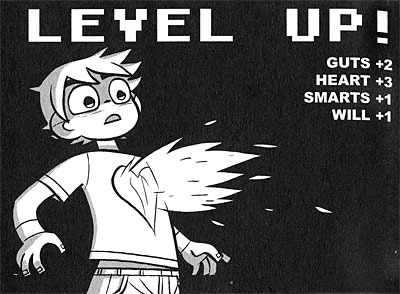
3rd Moment: Revision
I think the biggest moment I’ve had in Writing 1122 was learning about what revision actually is and what it looks like. I’ve thought that one draft is good enough and going through it once for any errors was revision. However, after reading the article by Nancy Sommers, I’ve realized that I’ve been doing it wrong this whole time. First off, one draft is never good enough. The first draft is for figuring out what you are going to say. The second is for figuring out “the structure of an argument and how all the various sub-arguments which are buried beneath the surface of all those sentences are related" (Sommers 384). Second, I learned that revision is not just changing a few sentences here and there, but also the changing of the ideas themselves. It makes sure that the ideas make sense by themselves while at the same time playing an effective role for the whole. As Sommers put it, it’s “seeing beyond hearing” (387). The sentence can sound as nice as a cool breeze on a hot summer’s day, but if it doesn’t help the argument, then there is no point of it being there. Tbh, I’m still learning to apply revision in my writing. It’s a habit for me to not do it correctly, but I hope that by practicing it more often it can become an integral part of my writing process.
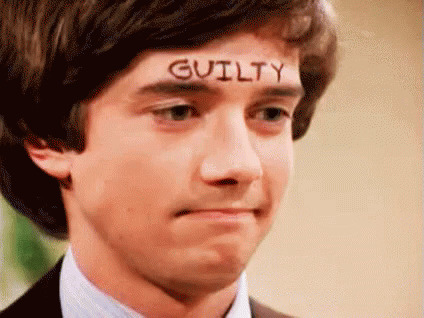
0 notes
Text
Sunday Something: Week 8
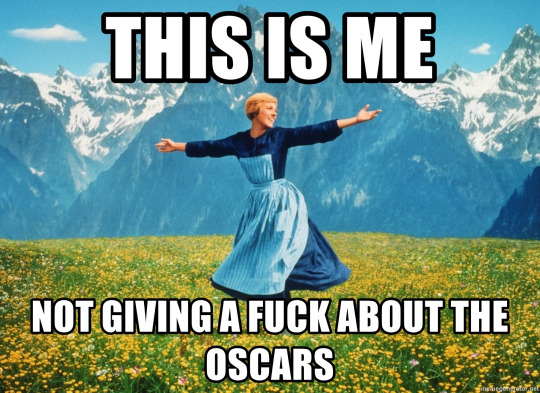
Fr tho, this was actually me
0 notes
Text
Murder! Rhetorically Speaking
Detective
On June 6, 2010, a dead body was found in a mall parking garage on the 6th level. The victim has been identified as Mark Smith. There are multiple stab wounds in his abdomen. The wounds look to be by a large blade, about two inches in height. He was already dead when authorities arrived at the scene. Based off of security camera footage, last sight of the victim was when he was getting off the elevator at 10:33 pm. It is estimated that he was assaulted at 10:35 pm and died at 10:37 pm. It is thought that he was coming back to his car after finishing his work as a janitor to go home. No additional evidence has been found yet. No suspicious fingerprints have been found yet. No possible suspects have been identified yet.
It begins with the overall picture of the crime scene. It ends with what hasn’t and needs to be found for the case.
I added the location of the wounds, how big they were, what weapon it was possibly cause by, estimated timeline, and possible reason he was in the area. I felt like adding these elements made the report more complete. I omitted personal and environment details because I felt like they wouldn’t help the case and would only be a distraction.
I chose words that felt serious and professional to me.
The tone I tried to take was serious and professional.
I ordered my information from the big picture to the smaller details. I went from the victim’s name to the wounds then to the estimated timeline to what the case needed in order for it to become closed.
Television and experiences, mine and others, probably gave me some kind of idea, but I honestly felt like it was supposed to be something like this.
Coroner
The body of Mark Smith (5ft 10in, Caucasian, male) has been received. All vitals were completely down at 12 am on June 7, 2010. The body temperature when received was 95° F. The cold summer night may have helped the decrease, but it has definitely been dead for about two hours. There are approximately 10 wounds in the abdominal area. Each wound is about 2 inches in length, penetrating about 4 inches into the body. A blade around the size of a kitchen knife may have been used by the assaulter. Approximately 10% of the body’s blood has been lost. No other damages to the body were found.
Eulogy
Mark Walter Smith was an honest, hardworking man. His death was highly unexpected for someone like him. I’ve known him since our freshmen year in high school. He was never the smartest or the most gifted, but he would always find a way to make my day. Whenever I was down, he’d be there to pick me back up. He would go on to marry his high school sweetheart, Susan, and have a wonderful family of two daughters, Janet and Lucy. Unfortunately, he never received the opportunity to get a degree, yet what he could do, he did. He would work long hours at the mall doing work that no one desired to do but must be done. He made sure that there was always food on the table, that his family was taken care of. Yet, in spite of his busy schedule, he would always make time for the ones he loved the most. The world has lost a great soul today in Mark Smith. I hope that we may treat each other with the same kindness and respect that Mark showed to each one of us. May his impact and memories live on in our hearts and minds forever and ever.
Lawyer
On June 6, 2010, at 10:37 pm, Mark Smith was brutally murdered in a parking garage by the man you see before your eyes, Dicky Smalls. As seen in the evidence presented before, Mr. Smalls committed the murder by stabbing Mr. Smith 10 times in the abdomen with a chef’s knife he stole from a local restaurant. Without a doubt, this man did it solely for the purposes of self-gain and pride. Now, I plead that you, the jury, bring justice for the young, innocent Smith family in your verdict. I trust that you all will do your best with the power that is within your hands. Thank you for your time and service.
Discussion
The easiest exercises for me was the eulogy. I’ve been to many funerals and memorial services, so I had a clearer sense of what to write and how to say it compared to the other three.
The hardest exercises for me were the detective, the coroner, and the lawyer. I don’t watch a lot of murder shows, so the direction I needed to take to write was fairly vague. It was also hard for me to find the jargon to use since I’m not highly experienced in those fields.
The rhetorical situation of academic writing demands for the writing to be formal and persuasive. The audience is always the professor and the people in the field of that writing. It can also be whoever the writer intends the writing to reach. Depending on the field, the tone can be from high and lofty to casual and common. Typically, academic writing requires the tone to be professional, formal, and without clear bias. The jargon necessary also depends on the genre of the writing, the field it is in. The information in the writing must always pertain to the topic it is addressing. Facts and experienced opinions are allowed, but biased opinions should never enter its’ realms. Overall, it’s better to use facts than opinions simply because society today values it more.
1 note
·
View note
Text
First-Year Writing and Learning
Growing up, I was pretty stubborn. Not just in the sense that I wanted what I wanted and would have it no other way, but also in my learning. I just couldn’t see why certain subjects mattered and why it I had to know them. Why do I need to how to do math? Why do I need to know about science? I especially didn’t understand what the flip writing was all about. Why do I need to learn to write? I thought that it only mattered in academia. I would only need to do it for papers and essays and that was it. It wouldn’t matter in the long run. Now when I think about it, I still think that school subjects don’t matter in life. You read that right. However, they become useful when they are transferred to different circumstances we face in life.
Transferring learning and knowledge, for me, is about applying a concept from a subject or experience to a different setting. This allows for us to gain new lenses to look at certain situations. It allows for an outside-the-box approach to out-of-this-world problems. Reflection is a key factor in making transfer successful. It’s important to remember that not everything can be transferred to different circumstances. Through reflection, we can see which things matter and don’t matter, and how we can use them for the best. People think in many different ways, so one train of thought does not fit everyone. When we take what we know and transfer it to what is being presented before us, it will help us understand it better and remember it for a longer time. I know many people who rely on this process for their learning. What makes the concept of different subjects special is that they are unique in their own way, yet they rely on each other to bring themselves to life. Math needs science, writing needs reading, and so on and so forth. This is why transfer is important. We can never fully understand a subject until we pull from different subjects and experiences to create a fuller picture.
School subjects don’t matter when they stand alone. They’re useless until we apply them to different situations. Math is useless until we use it to figure out how to maximize our profits. Science is pointless until we use it to cure terrifying diseases. Writing is futile until we use it to stir change within our communities. Knowledge has no purpose until we transfer it to solve our everyday problems.
0 notes
Text
Sunday Something: Week 7
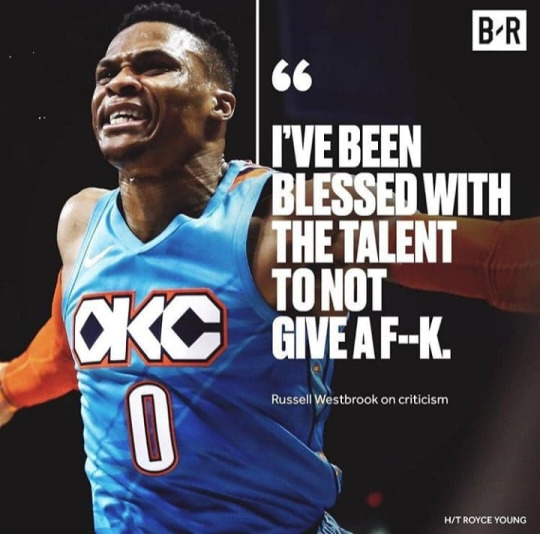
Gotta love the man🙏🙌
Originally posted by @bleacherreport
0 notes
Text
Maps: Take 2
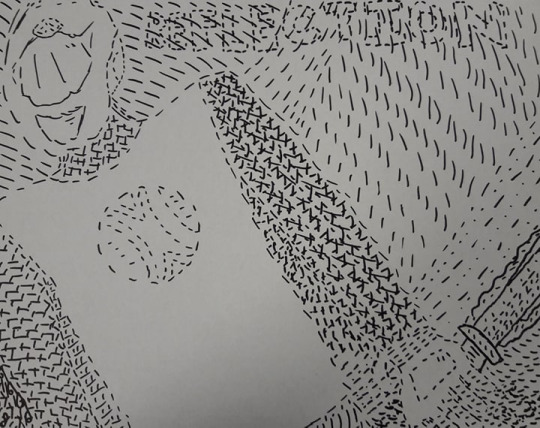
So let me kinda explain why my doodle came out like this. Yesterday, I watched multiple YouTube vids about a foreign movie. One of the actors in it used to play the role of a power ranger in a series, so my mind is in that realm right now (idk why honestly… but I love power rangers tho, so ya). Besides that, the word that I chose to define what writing means to me right now is reflection. As I was thinking about all the terms and theories I have learned up until now, I realized that they all had one thing in common: they require reflection. For example, Sommers defines revision as a “sequence of changes in a composition – changes what are initiated by cues and occur continually throughout the writing of a work” (380). It first requires that those cues be recognized, and that is only possible when we take a step back and reflect on what is written in front of us. This goes back to my doodle. As you can see, the word reflection is hidden underneath the mess of the doodle. This represents the import role reflection plays in finding the underlying problems within our drafts of writing. Revision, the fixing of those problems we find, can only happen once the light of reflection is shined upon them. The beauty of it is that reflection not only pertains to revision but also with everything else in the writing process. Brainstorming requires reflection. Understanding your audience requires reflection. Creating rhetoric requires reflection. This is why I think reflection is an important threshold concept for developing writers to understand. It ties with every single detail, every single part in the process. If they never learn to reflect, they will never be able to take their writing to the next level.
A key part of reflection is being able to look at things in different ways. It helps us understand the whole rather than just the parts. So, making visual representations of key terms help us see them through a new set of eyes. It allows us to get a fuller picture of what they truly mean, and when a part becomes clearer, so does the whole. Understanding a term better helps make our theory of writing become stronger and clearer. So right now, this is my theory of writing in a single sentence: writing is the process of converting thoughts to words for the sake of persuading an audience to take action on a particular subject. It’ll become more coherent along the way as I continue to better understand these different key terms that make up the theory itself.
0 notes
Text
Revision vs. Editing
For me, revision usually comes in the form of checking to make sure that the grammar and punctuation in my writing are good during and after it is “finished”. If it sounds good and gets the point across, I personally don’t feel a need to go back and conduct a deep, thorough inspection of the writing. Plus, just the thought of going through it again makes me cringe as hard as your dad’s jokes. However, after reading Nancy Sommers’ articles on revision, I realized that it is more than just fixing and changing a few sentences here and there. According to the articles, this is actually just editing. Revision is not just the changing of the words, but also the changing of the ideas themselves. It makes sure that the ideas make sense by themselves while at the same time playing an effective role for the whole. It’s a recurring process that happens during, in-between, and after the whole writing process. To keep it simple, it comes down to “seeing beyond hearing” (Sommers 387). What you write must not only be pleasant to the ear but also make logical sense to the eyes. It’s seeing all the different parts, on all different levels, come together as an effective piece of writing. In my opinion, this is only possible through reflection. The two go hand in hand. As we reflect on our writing through “new” eyes, the problems lying underneath it become exposed to us. Then, the only way to fix them is through revising the piece, but this isn’t easy. The crazy thing about revision is that it’s supposed to hurt. It’s supposed to put your heart, mind, and writing in a blender and tear them to pieces only for you to put the mess back together. Sometimes, the only way to resolve a problem is to start from square one again, throwing away all your hard work in the trash. However, if the problems hinder the writing from becoming effective and persuasive, then what must be done must be done. No one likes to go through pain, but it is the only way for us to become stronger. The same goes for our writing. The only way for it to grow and flourish is for it to go through the pain of revision. However, though the pain be great today, the reward will be even greater tomorrow.
2 notes
·
View notes
Text
Reflecting on Reflection
Let’s be real: college students are lazy as f*ck. We are not gonna do something just for the sake of doing it. Working out in the gym: hard NO. Eating ice cream and watching Netflix: HELL YEA!!! So when it comes to reflecting, why do it? What’s the point? Wouldn’t it be easier to write and call it good? Is this just extra work or is there actual value in doing it? I’d argue that reflection is actually a valuable, necessary component to the writing process.
So, what exactly is reflection? For me, reflection is thinking deeply about something. I tend to reflect a lot when big life events happen (major trips, graduation, breakups, etc.). It’s kinda the same when it comes to writing. When most students think about reflections, it’s something along the lines of writing about what they did for the assignment and thought about it after finishing it. However, it is more than that. Reflection happens before, during, and after the main assignment. In writing, it comes in the form of “revisiting, projecting, and revising” (Yancey 11-12). Before you write, you need to reflect on past experiences and knowledge to help you brainstorm ideas for it. During writing, you need to reflect to make sure you are heading towards your goal. John Dewey says that in reflecting, there “is a goal to be reached,… this end sets a task that controls the sequence of ideas” (Yancey 9). One way to make sure you are reaching that goal is by stopping every so often to read what you just wrote. In doing so, you are able to see if it helps you get closer towards that goal. You are also able to make necessary rhetorical changes to put you in the right direction. Then, after the assignment, you need to reflect in order to, again, make necessary rhetorical changes and, for you, to learn how to become a better writer. It may seem uncomfortable at first for those who aren’t used to it, but the process will become extremely effective when it “becomes a habit of mind, one that transforms” (Yancey 12). I’d even push it a step forward to say that it needs to become a lifestyle, but I’ll save that for another day.
Practicing Reflection: Theory on Writing (So Far…)
Five weeks into the quarter and, honestly, it’s been a lot to take in. As I reflect on what I’ve learned in Writing 1122, I’ve realized how complex writing really is. You got the rhetorical situation, rhetoric, genre, audience, and reflection (to name a few). It’s a lot when you add this with the stuff I’ve learned before. Yet, when it comes to writing, I still believe in just doing it. All these theories and terms are important to understand and grasp, but they must become a habit in order to become a good writer. Then, when you are writing, they will come out naturally and unforced. At that point, all you have to focus on is just writing. All you have to do is just do it.
0 notes
Text
Sunday Something: Week 6
Here’s a vine compilation to brighten your mood today:
youtube
0 notes
Text
(En)Trenchment
Audience Awareness Leads to Effective Writing
Writing always has a rhetorical situation behind it. Whether it’s trying to get people to start recycling or to get your significant other to buy you dinner, we are always trying to evoke a response from our audience when we write. In order to successfully and effectively create the desired response from the audience, you need to know who your audience is. Being aware of how your audience thinks and reacts gives you insight that can help you make “deep” rhetoric decisions to persuade them to action. It also changes the process of how the writing is formed so that the audience is able to connect with it through ethos, logos, and pathos.
Realizing who your audience is has never been more important and significant than in today’s age. What people say and write can easily be misinterpreted. This is extremely prevalent in social media. A post, tweet, or comment can be interpreted in a totally opposite direction than what was intended. This is because tone and body language are easily lost in translation. Both of these are key elements in communication. It is hard to see or hear these things in writing most of the time. Something may have been written in a sarcastic tone, but the audience may have interpreted it in a serious one. The writing has lost its effect and thus failed to persuade its audience. However, the absence of tone and body language does not become a massive problem if you have great audience awareness. By understanding how your audience thinks, in your writing, you can lead their train of thought in the desired direction. Then, by going towards the desired direction, the possibility of the desired response happening becomes greater. When the desired response takes place, then the writing can be deemed effective.
As writers, we strive towards creating effective writing, and when we become aware of who our audience is, how they think and react, we are able to create such writing.
3 notes
·
View notes
Text
Where Good Ideas Come From
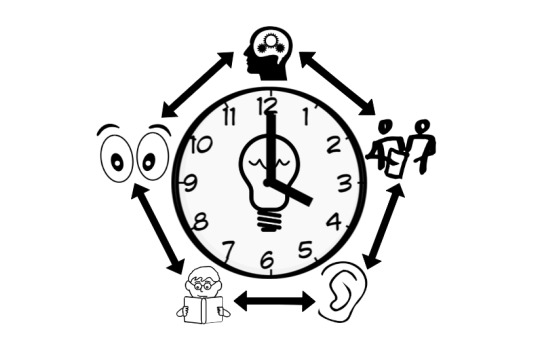
So let me just explain what’s with the pic-thing you see above. This is how I see my ideas developing and becoming good. The lightbulb in the middle represents the idea itself. Everything around it helps it develop. The images on the outskirts represent the different elements that make up the process of my idea development. There is no starting point in the process but it requires that every single element be part of it. The brain on the top represents thinking about ideas. This happens a lot when I’m just by myself and not really doing anything (even though I got a buttload of assignments to finish). It could also happen when I’m doing something that doesn’t require a lot of thinking, like working out or working at work. The two people to the right represent communicating with others. This is important because as we talk and collaborate with one another, our ideas begin to form and take hold. Getting exposed to new ideas help our ideas to become better. The ear and the child reading also have the same concept with communicating. Although you aren’t talking to others, by reading and listening to different things, you are being exposed to new ideas or concepts that will benefit your ideas in some way or another. Steven Johnson would back me up, as he says, “we are often better served by connecting ideas than we are by protecting them” (22). Reading and listening can take many forms, but the most common for me is through social media. Being honest, it’s where I spend a lot of my time on, so a lot of the influence for my ideas come from there (I should probably be careful with that). Last but not least, the eyes represent things we experience in our lives, things we see take place in front of our very eyes. It influences how we think, what we think, and why we think. It can be the reason an idea exists in the first place. For me, a lot of the ideas I think about come from my experiences in life, and by going through other experiences, I find ways to reinforce them. These five things are all important, but the biggest and most important piece to the puzzle is the clock, time. The reason the lightbulb is in the clock is that time is the incubator for ideas. You can do all the five elements as much as you want, but it is ultimately through time that the ideas in your head are able to become great ones.
1 note
·
View note
